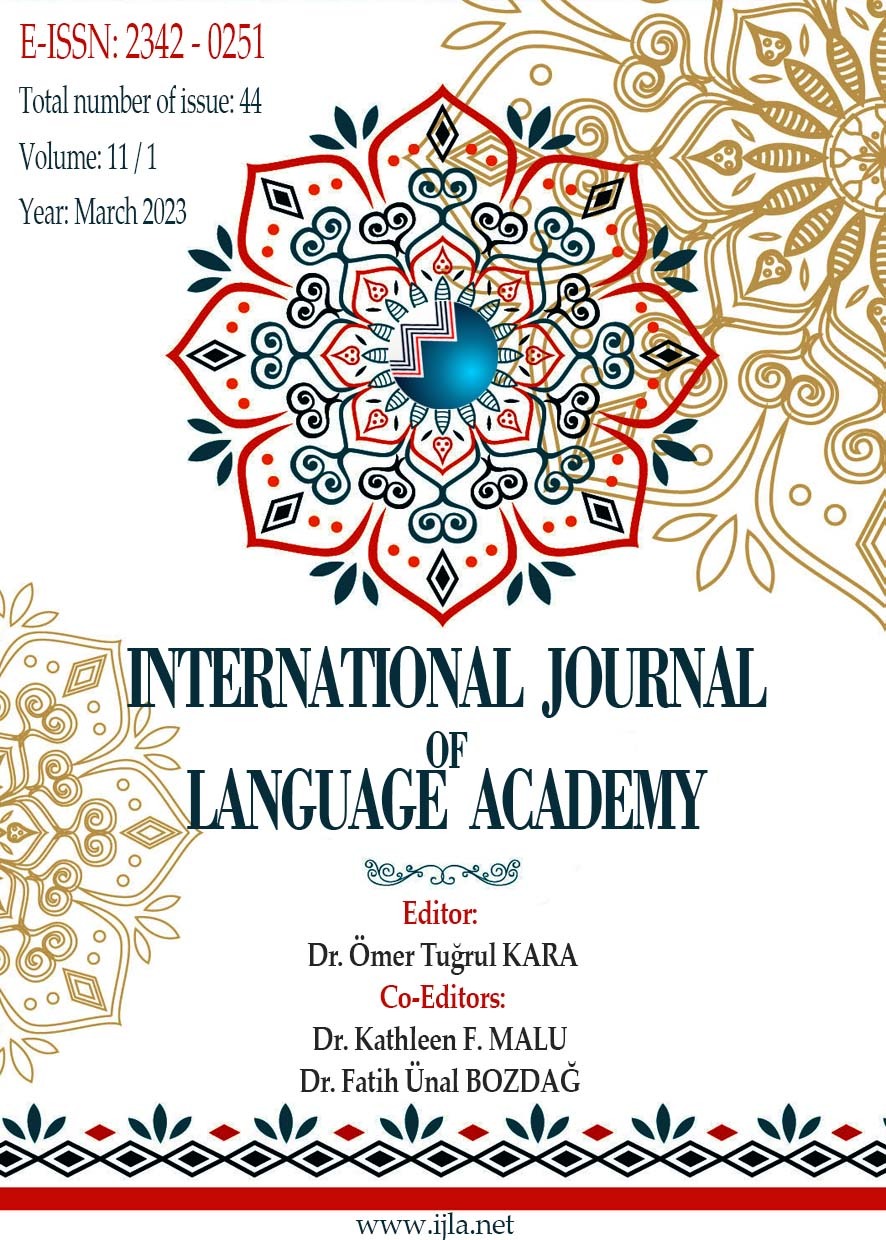Author :
Abstract
İnsan, yaşamı boyunca karşılaştığı kavramları, nesneleri, durumları, olguları, eylemleri dilin boyutuna aktararak var oluşunu gerçekleştirir. Bu yüzden dil, çok yönlü ve yaşayan bir olgu olma özelliği taşır. Dil, bir iletişim aracı olarak hem düşünceyi oluşturan hem de düşünceyi aktaran bir özelliğe sahiptir. Dil aracılığıyla kavramlaştırılan düşünceler, yaşantılar, bireysel ve toplumsal bir dil kültürü oluşturur. İnsan, ana diliyle doğar. Yaşamı boyunca, dünyasını onunla biçimlendirir. Ana dili, insanın kimliğidir. Bireysel olan ve aynı zamanda toplumsal bir özellik taşıyan ana dili, toplumun da kimliğidir. Türkçe, ana dili olarak Türk toplumunun kimliğidir. Bireyin ve toplumun diğer özellikleri, bu kimlik üzerine kurulur. Türkçe Türk milletinin kimliği olma özelliğiyle bireyin ve dolayısıyla toplumun vazgeçilmez bir değeridir. Bu çalışmada Tük milletinin düşünce dünyasının oluşumunda söz sahibi olan bir etken olarak Türkçe bilincinin önemi üzerinde durulmuştur. Geçmişten bugüne Türkçenin değişimine, dönüşümüne bakıldığında bu bilincin oluşturulmasında ya da oluşturulamamasında birtakım etkenlerin var olduğu görülmektedir. Bu çalışmada dil/düşünce ilişkisinden hareketle Türk toplumunda geçmişte olduğu gibi bugün de Türkçenin en önemli sorunlarından biri olan alıntılama durumu ile ilgili örnekler üzerinden değerlendirme yapılmaya çalışılmıştır. Bireyin düşünce oluşumuna katkıda bulunan edebî ürünlerin ana dil bilincinin oluşumuna yönelik katkısı üzerinde durulmuştur. Toplumda ana dili olarak Türkçe bilincinin oluşumunda olumlu ve olumsuz etkenlere dikkat çekilmeye çalışılmıştır.
Keywords
Abstract
By transferring the concepts, objects, situations, facts, and actions they experience throughout life to the dimension of language, an individual realizes their existence. Therefore, language is a universal and living phenomenon, which, as a means of communication, has a characteristic that both creates and conveys thought. Thoughts and experiences conceptualized through language construct an individual and social language culture. Throughout a person's life, their mother tongue is the key to shaping the world. Likewise, the mother tongue is the person's identity, and, at the same time, it has a social feature representing the society's identity. Turkish, as the mother tongue, is the identity of Turkish society. Other characteristics of the individual and society are built on this identity. Turkish is an integral value of the individual and, therefore, the society, as it is the identity of the Turkish nation. This study emphasizes the importance of Turkish awareness as a factor that plays an essential role in forming the Turkish nation's conceptual world. When we look at the change and transformation of Turkish from the past to the present, it is seen that there are various factors in the creation or failure of this cognition. In the study, based on the relationship between language and thought, an evaluation was provided on the examples of quotes, which is one of the most critical problems of Turkish today, as it was in the past. The contribution of literary products that contribute to the formation of the individual's world of thought towards the formation of mother tongue awareness is emphasized. Finally, it aimed to draw attention to the positive and negative factors in forming the Turkish language awareness as the mother tongue in our society.





